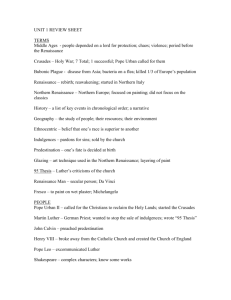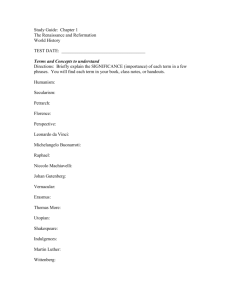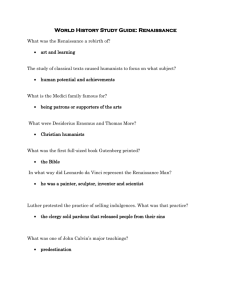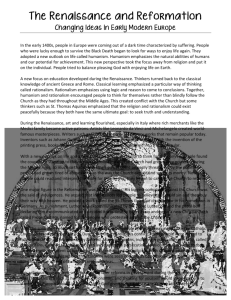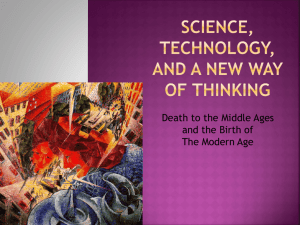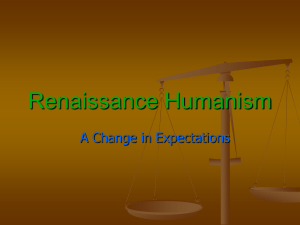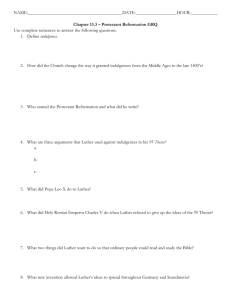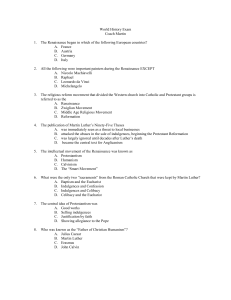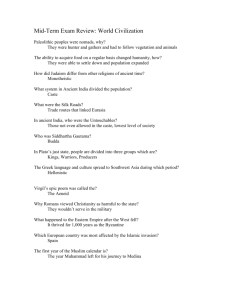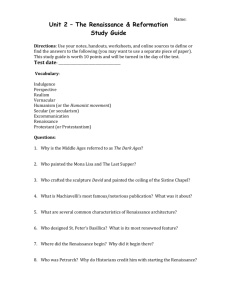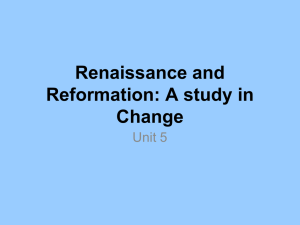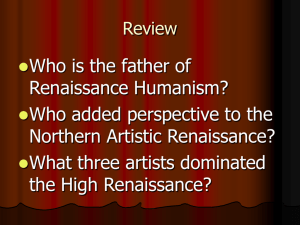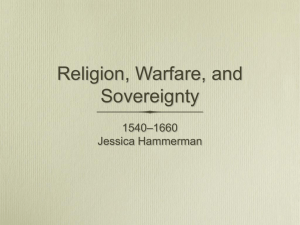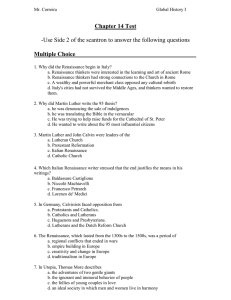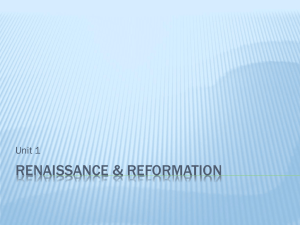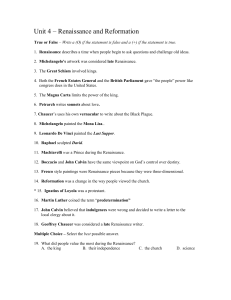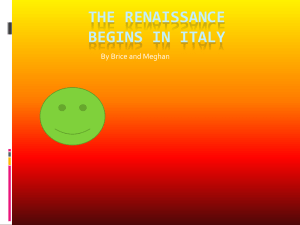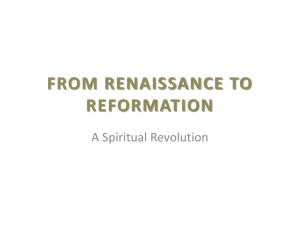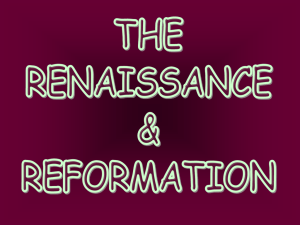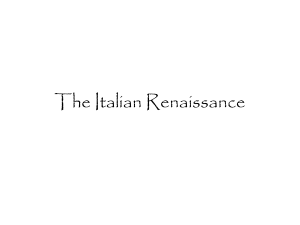Renaissance and Reformation Study Guide
advertisement
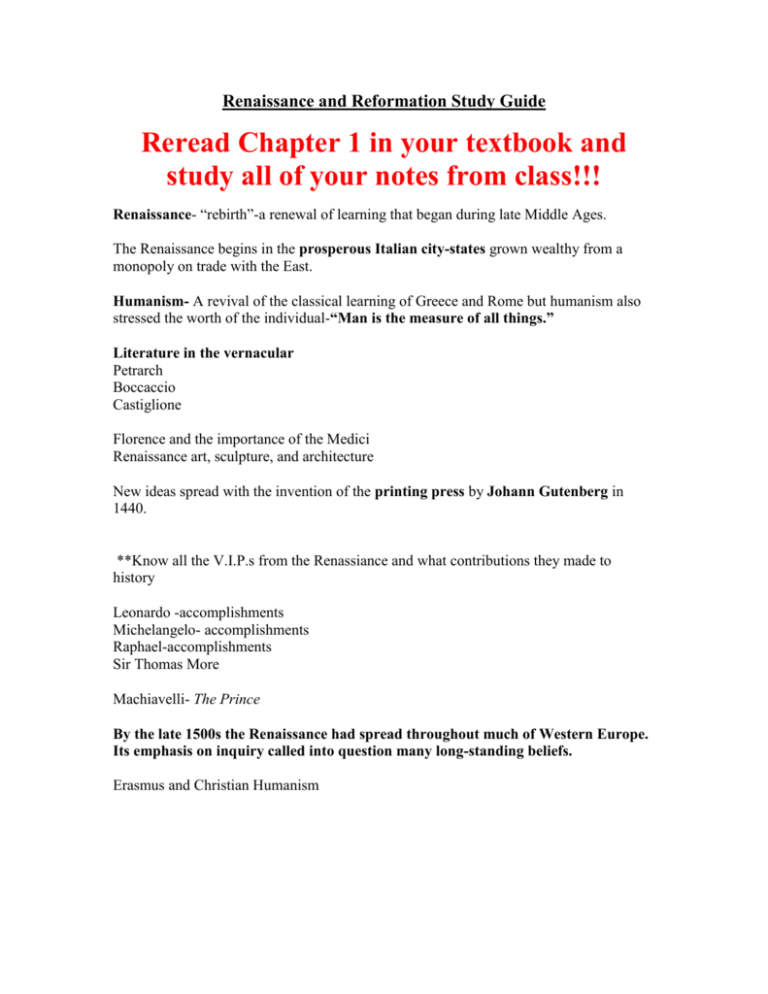
Renaissance and Reformation Study Guide Reread Chapter 1 in your textbook and study all of your notes from class!!! Renaissance- “rebirth”-a renewal of learning that began during late Middle Ages. The Renaissance begins in the prosperous Italian city-states grown wealthy from a monopoly on trade with the East. Humanism- A revival of the classical learning of Greece and Rome but humanism also stressed the worth of the individual-“Man is the measure of all things.” Literature in the vernacular Petrarch Boccaccio Castiglione Florence and the importance of the Medici Renaissance art, sculpture, and architecture New ideas spread with the invention of the printing press by Johann Gutenberg in 1440. **Know all the V.I.P.s from the Renassiance and what contributions they made to history Leonardo -accomplishments Michelangelo- accomplishments Raphael-accomplishments Sir Thomas More Machiavelli- The Prince By the late 1500s the Renaissance had spread throughout much of Western Europe. Its emphasis on inquiry called into question many long-standing beliefs. Erasmus and Christian Humanism The Protestant Reformation John Tezel and the sale of indulgences. Corruption of the Church Martin Luther opposed the sale of indulgences. Luther claimed people could not buy God’s forgiveness- justification by faith (1517) 95 Theses- criticized the sale of indulgences and other Church practices. (simony) Pope excommunicated Luther in 1521. Diet of Worms Bible in the vernacular 1534 Peace of Augsburg 1555 Lutheran revolt was greatly aided by printing press. Henry VIII Anglican Church 1536 John Calvin and Calvinism Geneva 1536 Theocracy Predestination Counter Reformation-1530s Council of Trent 1545-1563 Brought an end to many abuses Clearly stated the Church teachings Reinforced the Pope’s authority 1542 the Inquisition was given full powers to root out Protestantism as heresy. Inquisition put an end to Renaissance- Italy’s thinkers had to obey the Church in all things. The Church made an example of the scientist Galileo. Ignatius Loyola founded the Jesuits or Society of Jesus in 1534 to combat Protestantism. They stressed education and founded colleges in Europe combining humanist values with Catholic theology. Scientific Revolution – Understand how it compared to the thinking of the Middle Ages and how it changed history and it what ways Copernicus Kepler Galileo Vesalius Newton **Know the new inventions of the Scientific Revolution
